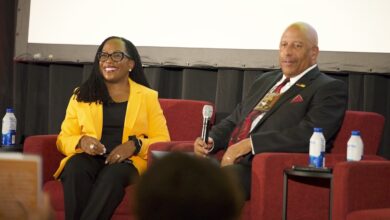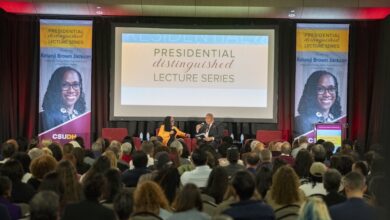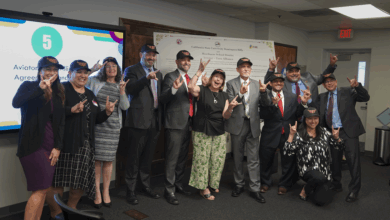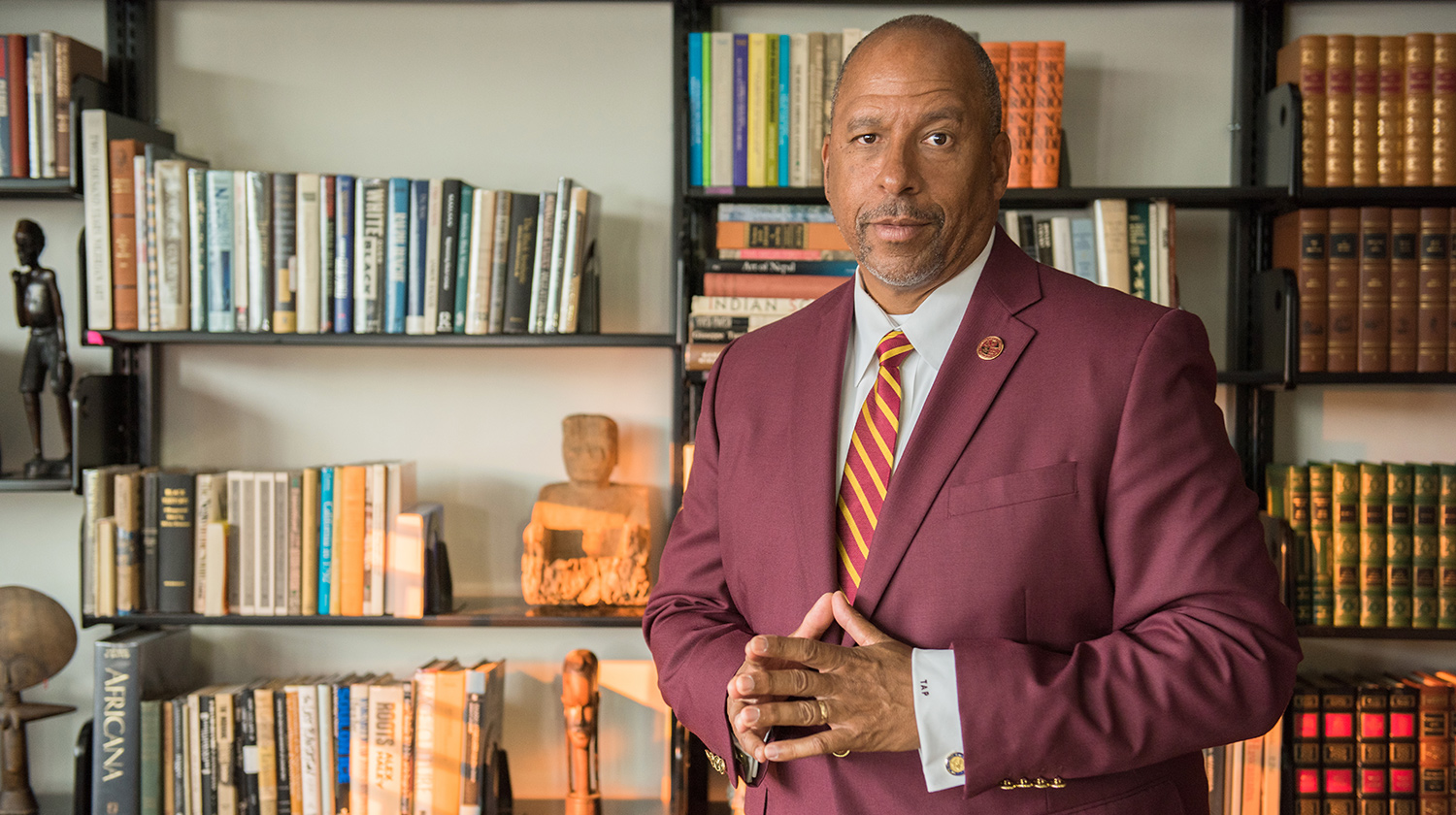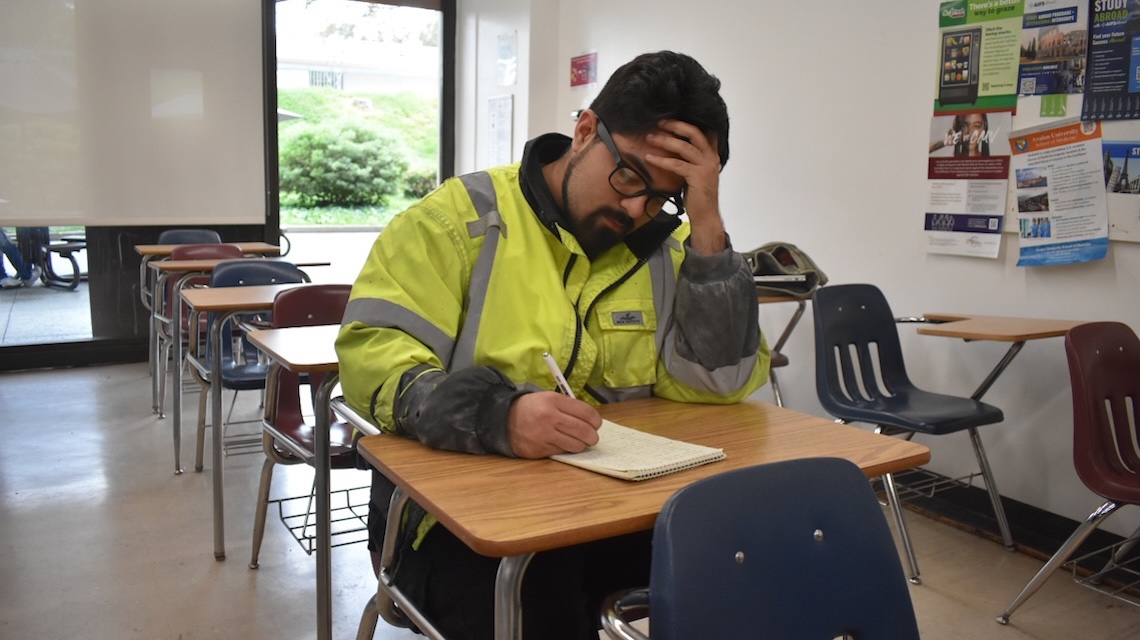
Source: EdSource
I will never forget the intense sense of relief I had every time I clocked out of my graveyard shift at FedEx. Every work night of six hours consisted of using machinery to push, scan and load 1,000-pound crates onto Boeing planes. Afterward, I’d drive straight to my college campus where I would park and set my iPhone alarm for 9:45 a.m., just so I could nap for three and a half hours and wake up 15 minutes before my Latin American studies class began.
Three and a half hours of sleep was barely enough to keep my eyes and ears awake for a two-hour lecture about the impact of Hugo Chávez on Venezuela.
That pretty much describes my college life in 2023, and I don’t regret it one bit. Here’s why:
During my junior year, I was a full-time journalism student attending California State University, Dominguez Hills (CSUDH). Due to a bit of luck, all the classes I needed to take were early in the morning, Monday through Friday, which coincidentally aligned with my overnight work schedule at FedEx. Go figure.
At first, I welcomed this opportunity to push myself and see how much money I could earn for tuition and rent without tanking my grades. I remember thinking to myself, “Why the heck not? Working graveyard can’t be too bad.”
To no one’s surprise, I ended up losing track of time. My days bled into night, night into day, with no pause in between. No matter how much effort I put in, my sleep-deprived brain couldn’t keep track of tough homework deadlines or scheduled exams.
I eventually realized it wasn’t just my grades that were slipping, but my physical and mental health as well. Tugging 1,000-pound metal containers filled with mail left painful rope burns on both of my palms, which prevented me from typing out more than 50 words for some of my assignments.
I knew I wasn’t the only one taking these risks either. In fact, the 2021-22 Student Expenses and Resources Survey reported that three-quarters of community college students worked at least 21 hours a week, while only half of their peers at California State University, the University of California, and private colleges worked as much.
Another 2022 study conducted by the National Library of Medicine noted that students who work more than 20 hours a week often encounter academic burnout, which leads to severe fatigue and underperformance in the classroom.
However, that same study also reported that “employed students have the ability to manage their time much better than unemployed students, and the direct effect of burnout can only be explained by the high academic demands.”
In my case, that was partly true. The difference between a high-stakes math test vs. scanning a barcode is that one requires deep focus while the other demands muscle memory. Balancing a job while taking on 15 course units per semester requires strong time management, discipline and the willingness to sacrifice much-needed hours of sleep — along with any hope for a social life.
Over time, I realized that I had dug myself into an even bigger hole than I was in before I accepted this FedEx job. I wondered why I hadn’t just taken out student loans instead of putting myself through this hellish scenario.
It made me wonder if I had the will to keep studying journalism.
Whenever these thoughts clouded my mind as I worked during those long, cold nights, I’d find myself drawn to the glow of the Los Angeles Times sign erected atop the company building in El Segundo. Its white light spills across the busy FedEx loading ramp below, reminding me of why I was working a hard job in the first place.
My co-workers knew I was pursuing a journalism degree and often told me that they wanted to see me in that newsroom one day, overlooking the warehouse. Their support was worth more than gold.
For the longest time, I believed my only reason for working those late nights was to pay off my tuition and help cover house bills for my parents. I was wrong. I did it to prove to myself I was worthy of chasing a dream.
Working through college is no easy feat, but this experience taught me that there’s always something worth showing up for — whether it’s a degree, a new job opportunity or simply a better version of yourself.
Although I no longer work at FedEx, I will be forever grateful for the enlightenment it gave me to finish my journalism degree at CSUDH.
And despite everything, the best part of it all was finding good parking before everyone else.
Jimmy M. Dominguez is a journalism alumnus from California State University, Dominguez Hills. He served as president of the Society of Independent Student Journalists club and is a member of EdSource’s California Student Journalism Corps.

